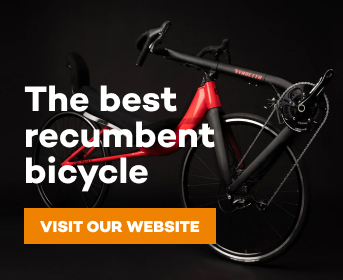On my Silvio V1.0 (2008) I have hand made TWE (Sydney wheel builder) 30 deep * 19 wide wheelsets with 24 bladed spokes on the front drive wheel and 28 spokes on the rear non drive wheel with rim brakes.
These wheels have been hammered on descents over cattle grids and road depressions adjacent to concrete bridge at 75 kph, that have got me air borne and no straightening has been required, and they still spin forever!!!!!
Bob, In Australia, Velocity has a bad name as many rim cracks through spokes, walls and especially the pinned joints, and there was NO support. This is direct from a few friends.
The Chukker (32 mm deep 24 wide) was the rim I was focusing on until I spoke to my mate with
8 bikes of his own, from Triathalon, road, utility, cruiser, and MTBs!
http://www.pardo.net/bike/pic/fail-001/FAIL-125.html
When I was researching for loaded TOURING bikes, not racing, I found that Mavic, Velocity, Salsa, and Stans Rims, all had rim failures WITH poor warranty service.
I am 242 lbs and I will go on another self supported tour through Europe, with 42 lbs luggage over the back wheel on a Silvio S30 with disk brakes.
I was looking for
a 30 mm deep rim that was
25 to 28 mm wide at the brake surface.
I went for the BHS C31W (Bike Hub Store) which are 31 deep by 24 wide with a brake surface, so I could use it on my Silvio V1.0 with rim brakes.
I went for Hope Evo 2 disc hubs 32 hole due to its strength, ease of obtaining bent spokes (NOT straight pull spokes), and ease of servicing, but with a noisy ratchet, while the White Industries was also very good AND quiet!
I went for Sapim CX-Ray Bladed spokes, 32 off each, due to the disk braking load, and high static load.
The local wheel building I was going to use has had some spoke pull through problems, so I have been trying to grow some balls and build the wheels myself!!!!
I am STILL procrastinating!!!! I WAS going to something else, but I am a POLITE AUSSY!



